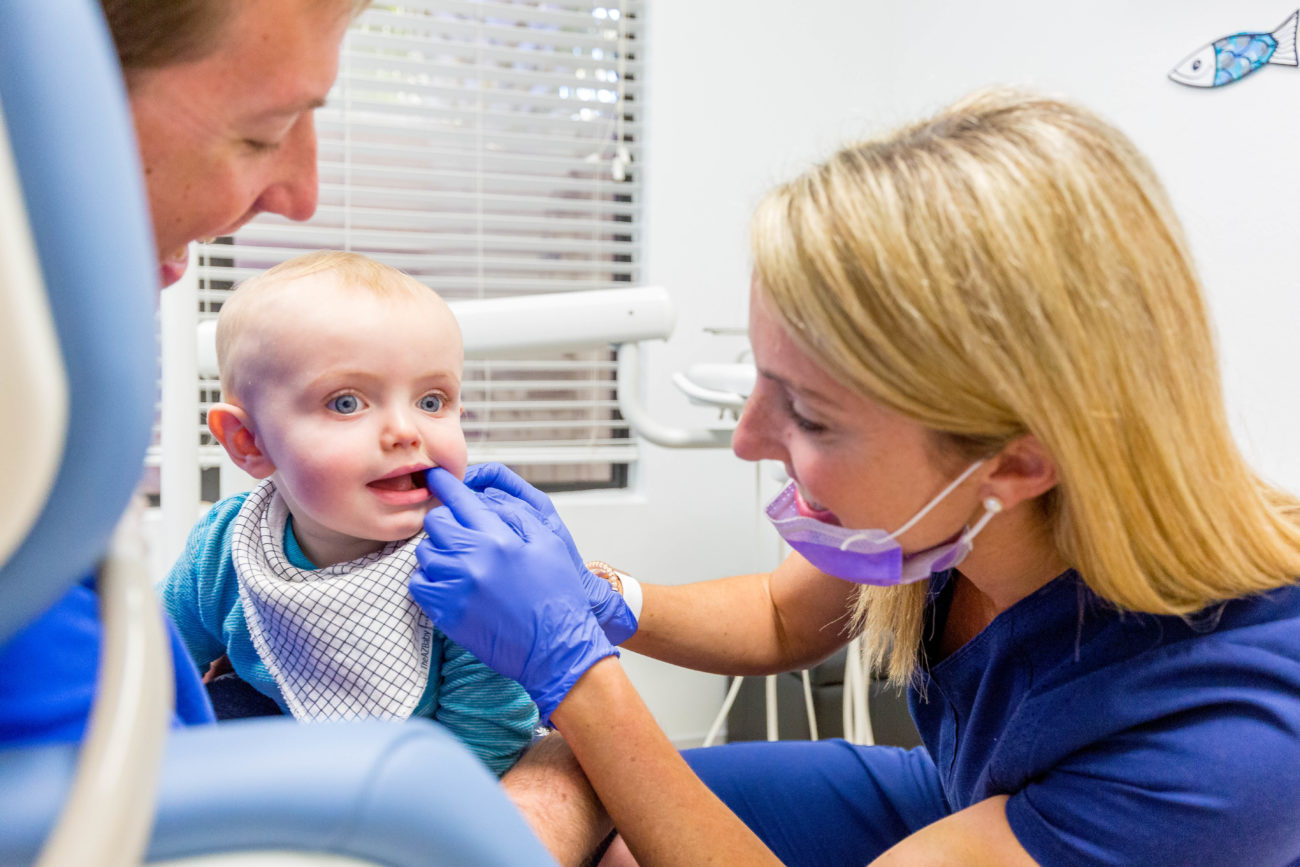The primary teeth, or baby teeth, play a very important role in your child’s oral development and keeping them healthy will provide the best possible foundation for a lifetime of good dental health. Primary teeth typically begin to erupt around 6 months of age, with most infants having their first tooth by their first birthday. By the time they are 3 years of age, most children have a full set of 20 primary teeth.
Dr. Miller recommends that parents or caregivers bring in their baby after the first tooth erupts or by their first birthday. This provides the opportunity to evaluate your young child’s oral development and begins the process of laying a foundation for a lifetime of good dental health.

Are Baby Teeth Important?
The baby teeth play a key role in both the oral and overall development of your child:
- Serving as placeholders for the permanent teeth
- Facilitate normal biting and chewing, enabling a healthy diet
- Promote and support normal speech development
Our pediatric dental team provides complete care for your child’s primary teeth and will monitor your child’s overall oral health and development during regular visits. If problems that will impact the eruption of the permanent teeth arise, we will work with you and your child to provide appropriate dental care. Our goal is to help all of our patients establish a healthy, functional smile and to teach them how to care for it between dental visits.
How Can I Treat Teething Pain?
As the primary teeth break through the gums, most babies experience pain and discomfort. Frustrated parents can help relieve their little one’s pain in a number of ways:
- Rub the gums where the teeth are starting to show with a clean, cool compress, washcloth or sterile gauze.
- Give your baby a cold teething toy to chew on.
- Consult Dr. Miller or your pediatrician if your child appears to be in a great deal of pain, is inconsolable or has a fever.
Teething can last for several days when each tooth or pair of teeth breaks through the gums. As your child grows they may become more tolerant of the teething process which will occur throughout their early years.
